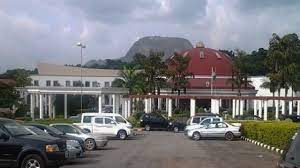By Isah Aliyu Chiroma
Our cities are drowning in noise and other nuisance that keep our atmosphere from sleeping in the morning, night and block our highways, depriving us our daily activities. This is Nigeria, where the cry of the political anthem is answered by the streets, traffic, and our homes—especially now, as election day is fast approaching. This is traditionally the country’s political environment, where youth involvement is limited to speaking out from every possible aspect rather than taking the lead as change agents.
The general election in Nigeria is just one month away, and everyone you come across is primarily preoccupied with his or her own candidates. You can hear it in everyone’s voices at every gathering you happen to see, from low-key speech to thought-exchange to angry facial expressions. This has been the climate of turbulence, when those who are engaging in verbal abuse or physical confrontation should be at the negotiating table to make decision about their future, and express the opinions of the people they are supposed to be representing. Over the years, youth involvement in politics has received little attention.
Let’s ascend the mountain to a place where we can see clearly, sit down, concentrate, and clear off the hazy visions obstructing our vision, especially during elections when the appropriate candidate must be picked, who is up to the task. The first election which was held on August 11, 1979, Shehu Shagari of the NPN defeated Obafemi Awolowo of the UPN, Waziri Ibrahim of the GNPP, Malam Aminu Kano of the PRP, and Nnamdi Azikiwe of the NPP. It was a victorious election that gave rise to the second republic in 1979 after General Olusegun Obasanjo, the military head of state, handed over authority. The presidential election of 2023 will feature one of the most heated multiparty contests since the result of the 1979 election.
Over the years, after the return of democracy in 1999 are closely examined, it is evident that the nation has not only ended the military dictatorship but also evolved away from a one-party system and toward a more developed and competitive political environment. This has given rise to a lot of changes in the political atmosphere.
With eighteen contenders running for the Aso Rock, who represent every region of the nation, the campaign is suffering in unprecedented ways. Nigerian elections have a history of controversy, which has been recorded with electoral failures. We would continue to have issues unless political leaders change their mentality toward elections, as the late former president Yar’Adua put it: “No matter the legislations, no matter the efforts we put at electoral reforms, unless we the political leaders change our attitude towards election, we will continue to have problems.” After being inaugurated as president in 2007, he promised to modernize the country’s voting system. In order to investigate and pinpoint flaws and deficiencies that have impeded the desire for free and fair elections in Nigeria, Yar’Adua appointed a 22-member electoral reform committee. The committee’s objective, which was headed by Justice Muhammed Uwais, a former chief justice of the federation, comprised an analysis of Nigeria’s past general elections and the identification of issues that undermine its credibility.
Nigerian elections have been rigged over the years. In order to purchase votes, the security agencies have been compromised, the electoral officials and party agents have been paid, and on the night before the election, logistics have been delivered. Most of our politicians were chosen for office using this method. But if we truly want the change we are yearning for, we can still alter the entire process. One of the crucial roles we must play as citizens in making this decision is putting aside our differences. We all have our favorite candidates, but in this danger zone, when the nation is in need of a leader, who can fight the battle, we must choose wisely. These decisions should start in our wards, where we elect the people who will take care of our problems and crises and bring them to the attention of those who can address them and find solutions.
We clung to the unfulfilled promises that had dragged us back for years as we stood at this uncertain time. Will the new candidates maintain their new pledges, or is it just our political culture to enjoy the campaign trail and spout what seemed like a revelation while proceeding without making a meaningful change? These are some of the elements that, as a group of people with a shared vision for a better nation, we must take into account.
A glimmer of new optimism is felt when the wind picked up and arrived from the east, north, south, and west, scattering clouds of dust from the political space. We require a beacon of hope that will lure us and preserve our dear nation. As we waited patiently for D-day, when we would have to make sensible decisions, we needed to look ahead and consider a brighter future for both our generation and the ones to follow. In order to avoid being consumed by our poor choices, it is our responsibility to cast votes wisely, and choose capable leaders.



